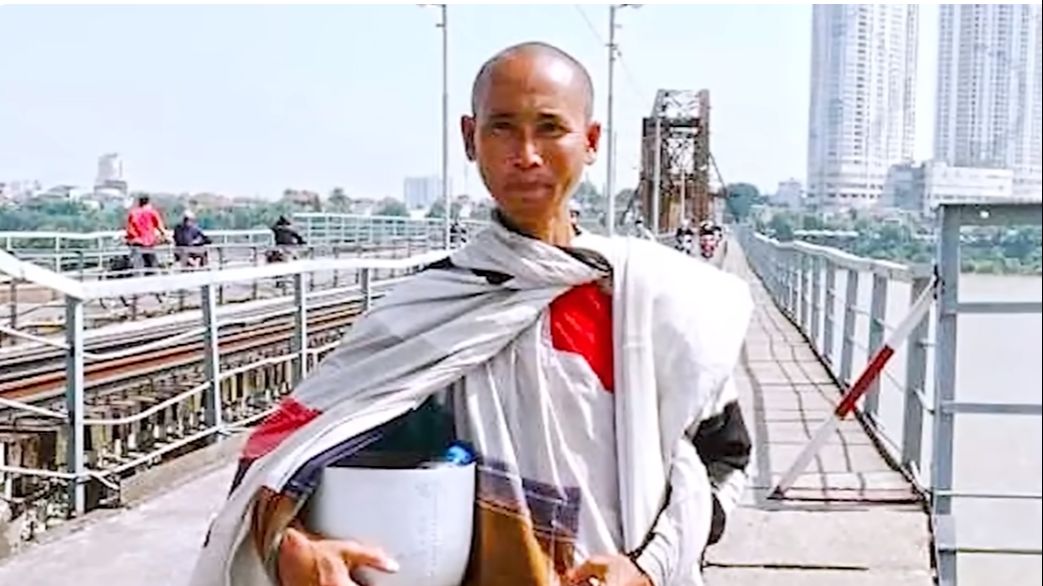The authorities have directly met and exchanged views with Master Minh Tuệ, the state's stance is to respect the freedom of religious belief of everyone, and the local government creates conditions for him to walk on his journey as he wishes, but it is necessary to ensure the safety of people's lives and health and social stability. The reason is that some people who followed the master have encountered serious health issues.
Specifically, a man residing in District 1, Ho Chi Minh City, followed Thích Minh Tuệ for a while and suffered from heat shock, multi-organ failure, and gastrointestinal bleeding leading to death. Subsequently, on June 2, two women who followed Thích Minh Tuệ and the group collapsed from heat shock and exhaustion on the road and were promptly taken to the hospital by the authorities for treatment and have since recovered from critical condition.
In addition, the groups of people following Master Minh Tuệ have caused traffic disruptions, creating a chaotic atmosphere affecting security and order. In light of the situation, the authorities had to intervene, and Master Thích Minh Tuệ, after clearly understanding his rights and obligations as a citizen, voluntarily stopped the practice of walking for alms.
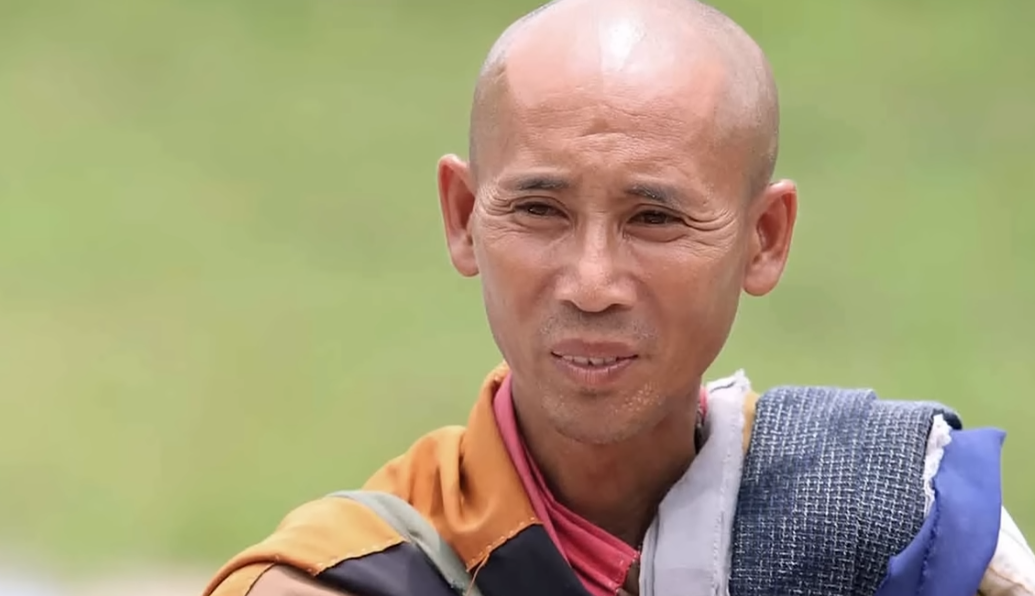
Thích Minh Tuệ's birth name is Lê Anh Tú. He was born in 1981 in Kỳ Văn commune, Kỳ Anh district, Hà Tĩnh province. He is registered as a permanent resident in IA Tô commune, IA Grai district, Gia Lai province, and currently has no fixed residence address and has not yet made a citizen identification card. Previously, after finishing high school in Gia Lai, Lê Anh Tú registered for military service, and after being discharged in 2015, he decided to become a monk at a temple and took the Dharma name Thích Minh Tuệ. Minh here means bright, and Tuệ means wisdom, the meaning of the name is "to use wisdom to illuminate the path." Master Minh Tuệ practices according to the method of Hạnh Đầu Đà.
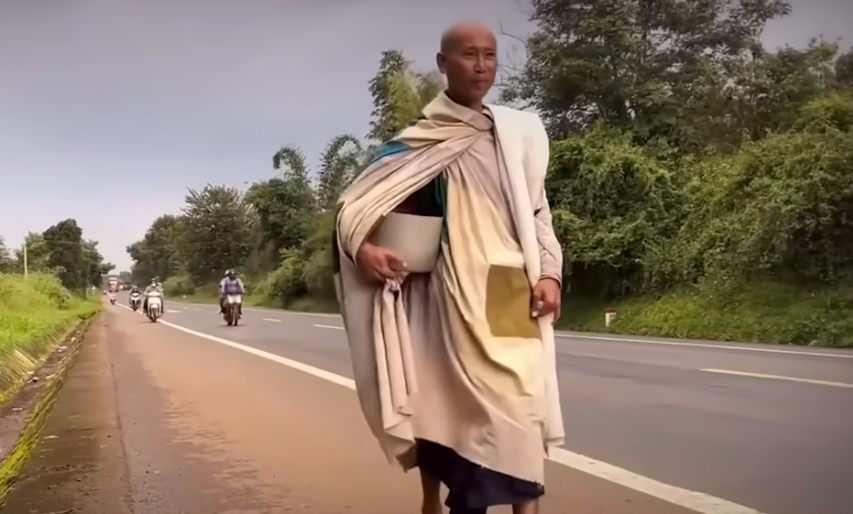
This method includes many parts, but mainly involves renouncing all comforts of life. "Going for alms" means eating only once a day, living in the forest, outdoors, or even in cemeteries, and when sleeping, one must sit and not lie down. This is a method that requires practitioners to train for a long time and have great endurance, which not everyone can follow. From 2017 to 2023, he has walked for alms three times from the South to the North and vice versa. Throughout this process, his walking and practicing the Hạnh Nguyện went smoothly without affecting security and order. However, in this fourth time, the trip became famous thanks to many YouTubers and TikTokers following him day and night, not to mention that there were also many Buddhists competing to follow Master Minh Tuệ to express their admiration for his practice method.
Previously, the Vietnam Buddhist Church had issued a document affirming that Lê Anh Tú is not a Buddhist monk. Lê Anh Tú himself does not claim to be a Buddhist monk, only a citizen practicing according to the teachings of the Buddha.
In 2024, it is the fourth time Mr. Tú has walked starting from Khánh Hòa province along the main road to Cao Bằng, Hà Giang, and is currently walking back, having reached the Central region. However, according to the Government's Religious Affairs Committee, during this return journey of Thích Minh Tuệ, there has been a phenomenon of many people gathering to follow him, affecting security and order and the environmental landscape. There have been many incidents where people following Master Minh Tuệ have engaged in arguments, chaos, and conflicts, causing disturbances that tarnish the noble image of the monks' practice. To ensure social stability, the safety and health of lives, and the freedom of religious belief, the Government's Religious Affairs Committee believes that all citizens with faith and religious needs should seek to practice according to the correct teachings and laws of religions, in accordance with the fine customs and traditions of the nation and the laws of the state, while also fulfilling their rights and obligations as citizens and not participating in activities that affect social security and order, maintaining a stable and healthy religious environment, contributing to building a disciplined society for the peace and happiness of the community.
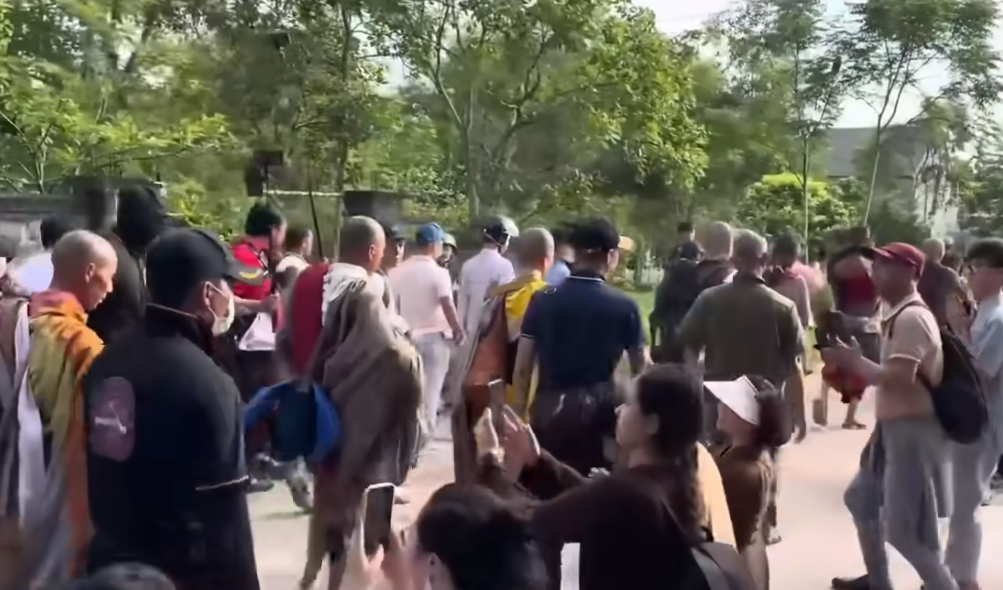
Master Thích Minh Tuệ's long-term walking for alms is not something unusual in Vietnam, and some other Buddhist countries like Thailand, Cambodia, and Laos also have monks who go for alms. The master himself does not consider himself too special and does not actively seek public attention. When someone asks to follow him to Hà Giang, he replies, "If you find peace and happiness, then go ahead," he neither invites nor drives anyone away.
In the Buddha's teachings, there are 84,000 methods of practice. Thích Minh Tuệ's choice of the Hạnh Đầu Đà method is his personal choice, and others choosing different practices is also their right; there is no right or wrong here. However, a part of internet users, for some purpose, has deliberately followed and excessively promoted the image of the master, relentlessly bothering him and the monastic community, causing chaos and disruption to security and order. These could be YouTubers, TikTokers, or Facebookers aiming to increase views and interactions for their channels to earn more advertising money or simply wanting to attract attention.
Following the crowd, many people have been waiting for the master to walk, pushing and shoving to get close to him to take photos or videos, creating a chaotic scene that is off-putting and counterproductive to Master Thích Minh Tuệ's wishes. Moreover, some hostile forces have exploited this trend to carry out wrongful actions against the Party's and the state's religious policies on social media.
The first goal that hostile forces aim for is to divide religions from the Party and the state. They spread and exaggerate conflicts and disputes to assert that religion and the socialist regime in Vietnam cannot coexist, distorting the concept by absolutizing the freedom of belief.
The second goal of hostile forces is to divide believers from non-believers, creating conflicts within each religion to weaken the great national unity of our people. These are very dangerous and misleading arguments; if the people are not clearly aware, they can easily be misled. The state's viewpoint is religious freedom, not the freedom to exploit religion.
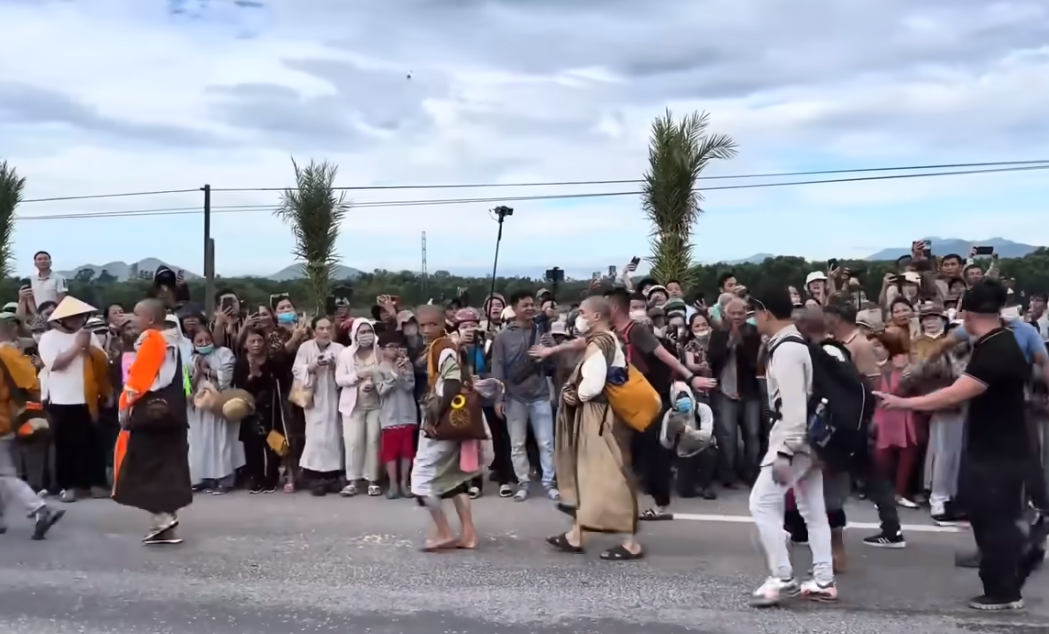
According to the Government's Religious Affairs Committee, there are 26.5 million religious followers, accounting for 27% of the population; the remaining population, although not officially following any religion, still maintains beliefs and spiritual worship customs, which is very valuable.
Buddhism is the largest religion with over 14 million followers, owning 18,544 temples with nearly 55,000 monks and nuns practicing. Catholicism ranks second with over 7 million followers and 7,771 places of worship. Protestantism and Cao Dai rank third and fourth in terms of the number of followers.
All religions are equal before the law, and people are free to choose a religion, belief, or non-belief. The state ensures and creates conditions for religious organizations to establish religious training institutions and open classes for religious education. Currently, there are 62 religious training institutions across the country. Vietnamese law protects the right to religious freedom but also strictly handles acts of exploiting religion. Article 24 of the 2013 Constitution of Vietnam stipulates that everyone has the right to freedom of religious belief, whether or not to follow any religion, and that religions are equal before the law; the state respects and protects the right to religious belief, and no one is allowed to infringe upon the freedom of religious belief or exploit religious belief to violate the law.
We all know that every person has some form of faith; this is a personal freedom that no one else can take away. However, we also know that we are living in a civilized society with clear laws and regulations, and we should not let fanatical beliefs lead us to actions that affect our health and social order.
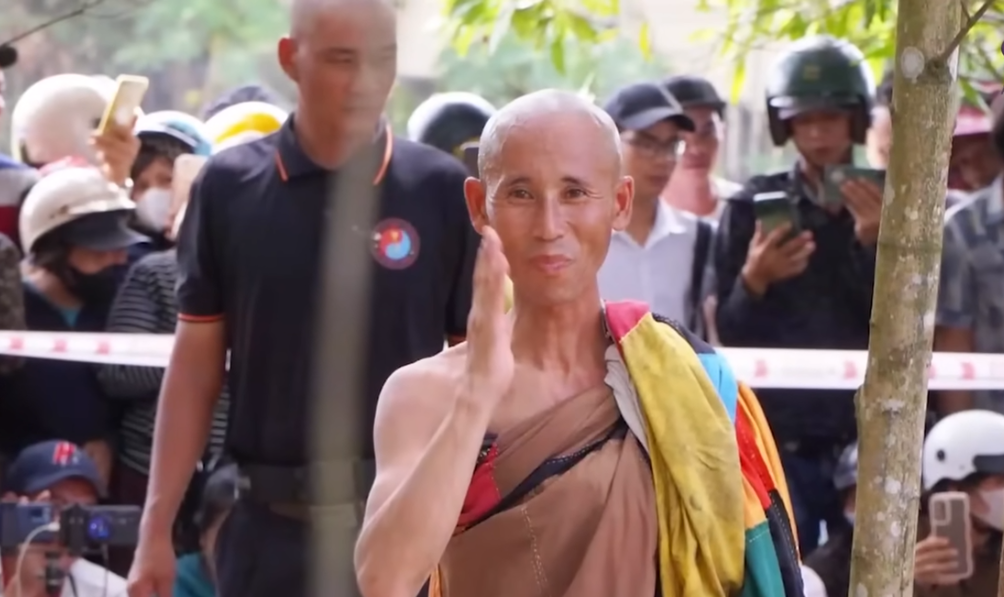
Master Thích Minh Tuệ has always been a shining example in practice, cultivating the mind and character, and we should follow his example rather than cling to him. He has stopped, and we should focus on our own work to allow the monks to peacefully follow the path they have chosen. Of course, this was not unexpected for many; over the past six years, Master Minh Tuệ's journeys have been quite stable, but when he became too famous, we all know that this journey cannot last long. The reason is that many issues will arise, from traffic order to the health of others, which Master Minh Tuệ himself does not want to be the cause of. Therefore, sometimes stopping is a more reasonable choice.
After stopping, Master Minh Tuệ was guided by state officials on the procedures for making a citizen identification card. In the near future, he has decided to rest and will continue to walk quietly in the future. His decision to stop not only reflects a genuine heart in following the path but also shows personal sacrifice for the benefit of the community. This decision has illuminated the spirit of compassion and respect that he has for the Dharma and sentient beings, which is truly commendable. It is hoped that his actions and sacrifices will continue to be a source of inspiration and valuable lessons for many in their practice and daily lives.
